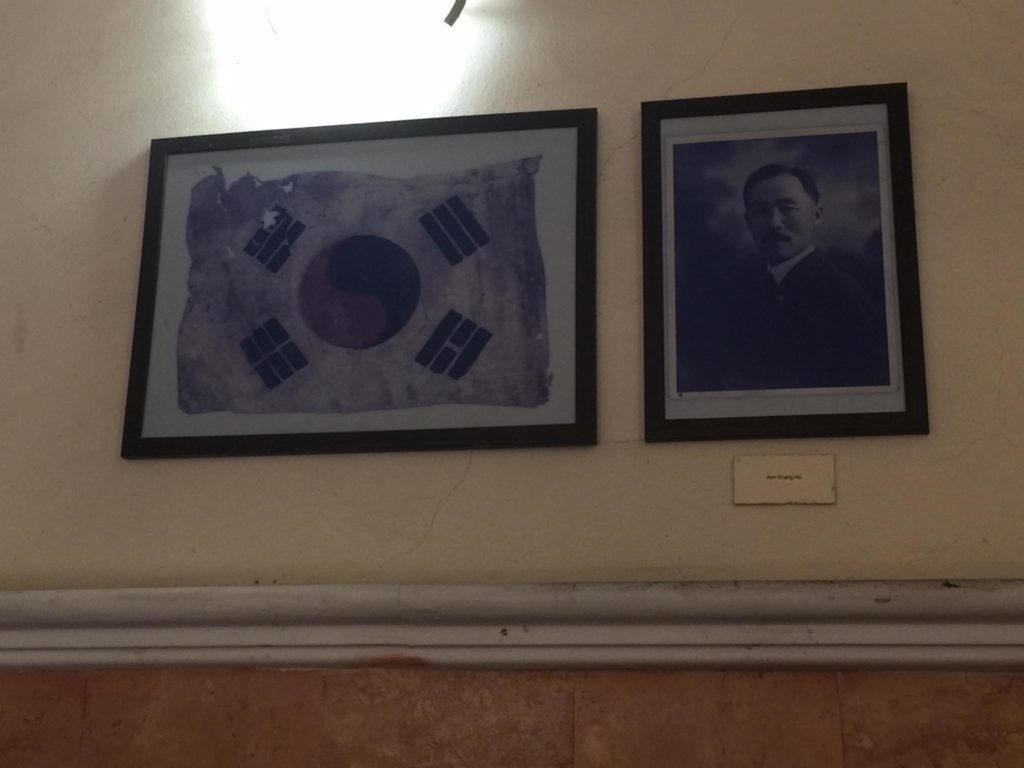A Personal Note About Our Mission
Our work at the Foundation focuses on the Korean diaspora. As a Korean immigrant, my life story is certainly a part of that rich and expansive heritage, but I only began to reflect upon it after retiring from a long corporate career. Growing up in the U.S., I did what every “one point five generation” kid was expected to do: I studied hard so that I could become successful in America. Of course, that meant attending elite universities and working towards a lucrative career as a doctor, lawyer, engineer, etc. Many of us dutifully (or perhaps mindlessly) followed and fulfilled our parents’ hopes and aspirations. If studying wasn’t your thing, you could still achieve the “American Dream” by having your own business and working hard—just like our parents did. Many of my friends did exactly that, and they too climbed the American dream as fast as those who became doctors or lawyers. Truth be told, it wasn’t always easy; we have had our share of harrowing experiences and failures in our new adopted land. But our work ethic and our sacrifices have changed us overnight, from a relatively new immigrant class into one of the highest achieving groups in America—both in terms of education and income levels. What is doubly gratifying is that while we were pursuing our personal dreams, the country of Korea achieved its own economic miracle. Often referred to as the Miracle on the Han River, this was the period when South Korea transformed from one of the poorest countries in the world into the economic giant it is today. Wherever I travel around the world, Samsung Galaxy phones, Hyundai cars and LG appliances always remind me of our collective achievements.
This is how I understood my Korean heritage; this is what I thought it meant to be a proud Korean American. That is until several years ago, when I visited La Cupula Cultural Center—a cultural center for contemporary art exhibitions and residencies—in Merida, Mexico. The hosts of the Center, now our dear friends, graciously took us to the Museum of Korean Immigration (Museo Commemorativo La Inmigracion Coreana). Imagine our surprise when we visited this site; we did not expect to find such a museum in this part of the Yucatan peninsula rich in history. This is where the story of the East Foundation and our pursuit of the Korean diaspora began. What started out as a quick tourist visit suddenly turned into our second life mission, when we met Genny (Museum Director) who proudly told us of her Korean ancestry and sang Arirang, bringing us to tears.
We had found our calling. When we returned from Merida, we yearned for more stories about Koreans and their descendants scattered all over the world, from familiar places like Germany and Mexico to more remote destinations like Uzbekistan and Cuba. We wanted to know: who were these people, how did they end up there, and why? We came across narratives that explored the profound historical and individual circumstances that constituted the Korean diaspora. Despite their multifaceted nature, these stories all exhibited underlying similarities.
Who knew about the hundred thousand of ethnic Koreans living in Uzbekistan, who are descendants of Korean Russians, once branded and banished by Stalin as the “Unreliable People”? Who knew about Jeronimo Lim, a Korean-Cuban who attended a law school with Fidel Castro and participated in the Cuban Revolution and later served as a top government official in the Cuban government? Who was the man they called Rice Grandpa, whose life mission was helping the newly arrived Korean immigrants in Brazil? There are hundreds of such stories of trials and tribulations from Koreans throughout the world. We carried ourselves as the educated and succeeded bunch, but we had no idea about our own ancestors and their history—OUR history!
We know little about the Korean diaspora, but we recognize that these stories are treasures of our own living history, ones that we must preserve and share with others. And not just with Koreans or our kids, but with anyone who merely sees Korea in relation to its economic achievements, its products and cuisine, or for its troubled connection to North Korea. Korea is much more than all these things, and without the Korean diaspora, the history of Korea would be at best incomplete, and at worst, indecipherable.
The East Foundation is a non-partisan, non-profit organization. We are not exploring the Korean diaspora to litigate the past, nor are we solely representing the lives of victims throughout Korea’s turbulent history. Instead, our primary and fundamental mission is to unearth, preserve, and share the untold stories of the Korean diaspora. They are treasures of our history that we cannot allow to become lost or forgotten. We believe there are significant lessons and experiences of utmost value for people interested in or connected to Korea. But it is our sincere hope that our mission should have an especially profound influence on all Koreans and their descendants everywhere, from all different walks of life. As noted civil rights activist Marcus Garvey eloquently stated: “A people without the knowledge of their past history, origin and culture is like a tree without roots.”
Thank you for your interest and support.
The East Foundation

